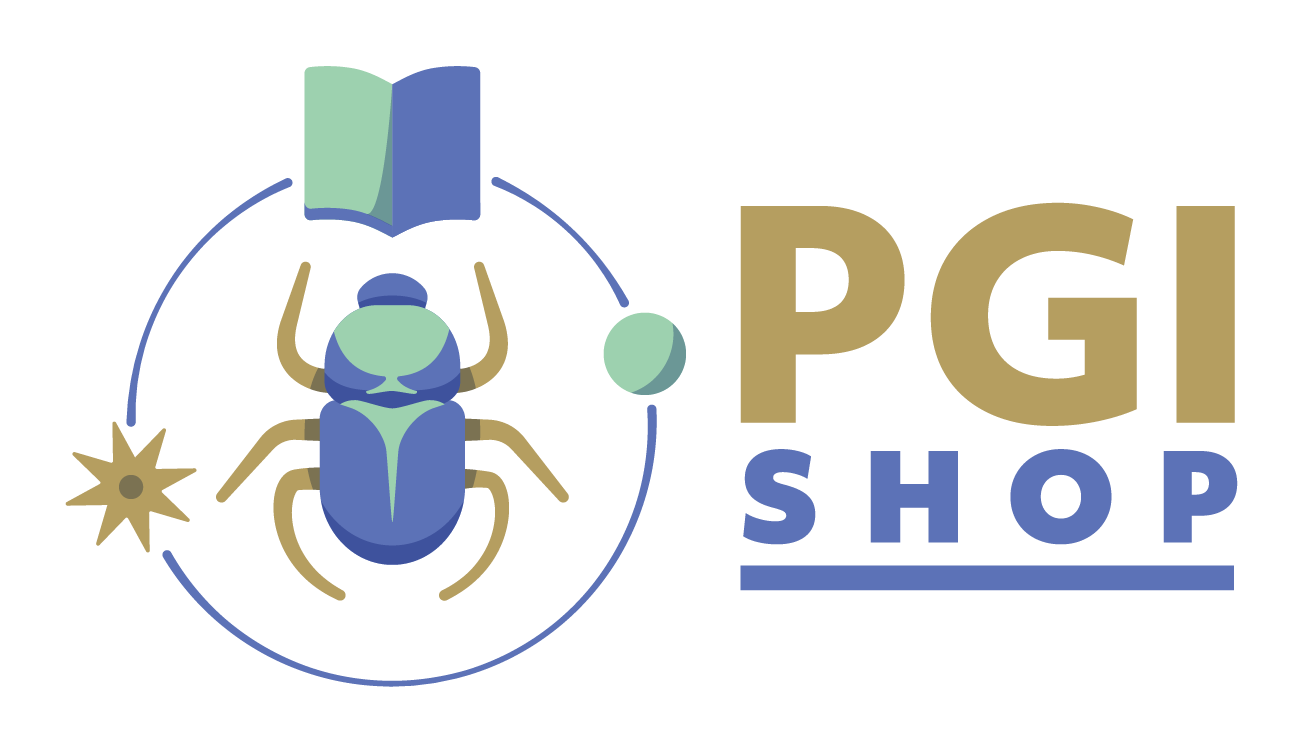Papyrus Bookmark - Tut Anch Amun painted
painted bookmark 5 cm x 19 cm in protective cover and decorative ribbon
PGI bookmark
made of hand laid papyrus, manufactured in Egypt
silkscreen motif, cut edge
Tut Anch Amun motif
Tutankhamun's reign was nothing special, but in death he contributed more to the interest in Ancient Egypt than any other pharaoh.
Had it not been for the discovery of his magnificent tomb, the Egyptian pharaoh Tutankhamun (c. 1341 - 1323 BC) would certainly never have achieved such fame. The young king's reign was not particularly remarkable. When he ascended the throne at the tender age of nine, the empire was still suffering from the chaotic conditions that had arisen in the wake of his father Akhenaten's religious reforms.
The royal advisor Eje guided the young pharaoh and succeeded in having Akhenaten's reforms reversed. Politics as well as the original deities and their temples were restored to their former glory.
Tutankhamun's sudden death is still a mystery, even though numerous theories have been put forward. Did he fall victim to malaria? Did he die of gangrene from a broken leg? Was he run over by a chariot? Or killed by a hippopotamus while hunting? Whatever the cause of death, it seems that the king was hastily buried and then just as quickly forgotten.
3,000 years later: In 1922, the British archaeologist Howard Carter discovers Tutankhamun's tomb in the Valley of the Kings. However, the find made headlines less because of the pharaoh's mummy than because of the rich grave goods, which Carter described as a "strange and wonderful jumble of extraordinary and beautiful objects".
The most valuable and by now probably best known treasure was the king's death mask, which contained more than nine kilograms of gold. Other grave goods were intended to ensure that he was strong, rich and well-fed in the afterlife, for example a leopard-skin cloak, four game boards, six chariots, 30 wine jugs and 46 bows. Carter spent almost a decade cataloguing the 5398 grave goods.
Our papyrus offer
We offer bright, hand laid natural papyrus from Egypt. From the size of a bookmark, over A4 and A3 up to oversizes of 92 x 192 cm, as well as various papyrus rolls, you are sure to find the right papyrus sheet. The design possibilities with papyrus are manifold. It can be inscribed with hieroglyphics or painted with various motifs. Tempera or watercolours, ink or felt-tip pens are suitable; it can even be printed with an inkjet printer.
Papyrus is a natural product
In the Nile Delta, papyrus leaves are still produced in the traditional way. Families in the countryside harvest the papyrus stems, which can be up to 6 metres high, and process the raw material into papyrus leaves with great skill. Carefully crafted papyri are produced in several steps, which always have an individual, handcrafted character.
The history
Papyrus has been produced and used as a writing material in Ancient Egypt since the 3rd millennium BC. It was always a highly valued product whose sole marketing rights lay with the Pharaoh. The German word "Papier" goes back to the Greek word "pápyros", which in turn is based on the ancient Egyptian word "pa-en-per-aa", which roughly means "the pharaoh's".
If papyrus is stored in a dry place, it has a very long life. Thus, papyrus scrolls or fragments that provided information about life in Ancient Egypt were and are still being found. The most famous papyrus scrolls are probably the Herculaneum Papyri, which were buried and preserved by the massive eruption of Vesuvius in 79 AD. Another 400,000 papyri from the ancient Egyptian Oxyrhynchus are still waiting to be deciphered and will once again bring much of interest to light. Julius Caesar is probably responsible for the greatest loss of knowledge in history. His soldiers set fire to the library of Alexandria, destroying thousands of important papyrus manuscripts.
Fair trade with Egypt
PGI buys Egyptian products directly from the producer. This allows us to bypass traders' stations and offer our customers favourable prices. But the Egyptian producers also benefit from this direct marketing, they achieve much higher prices for their products. We regularly visit our partners in Egypt and discuss the upcoming needs on site.

